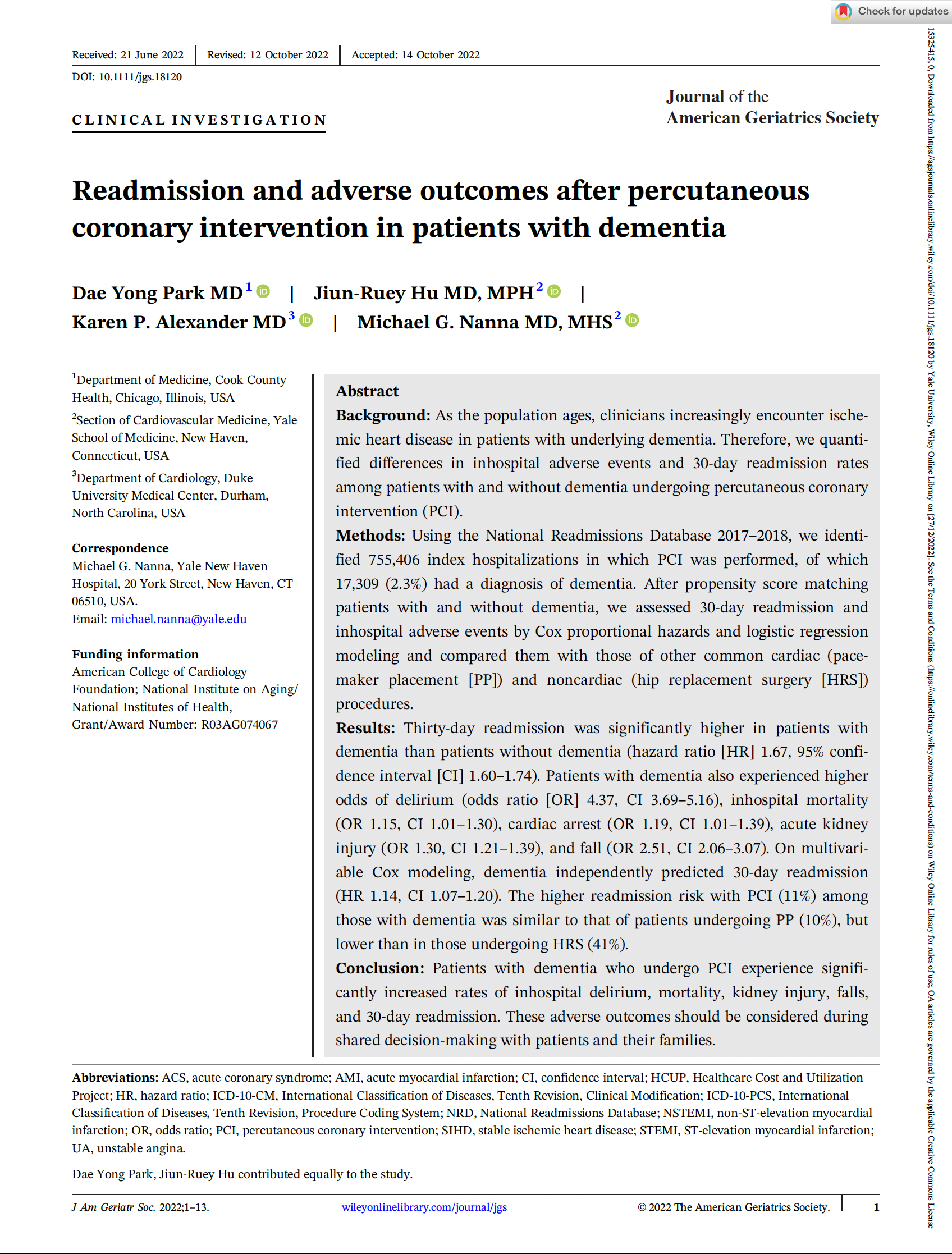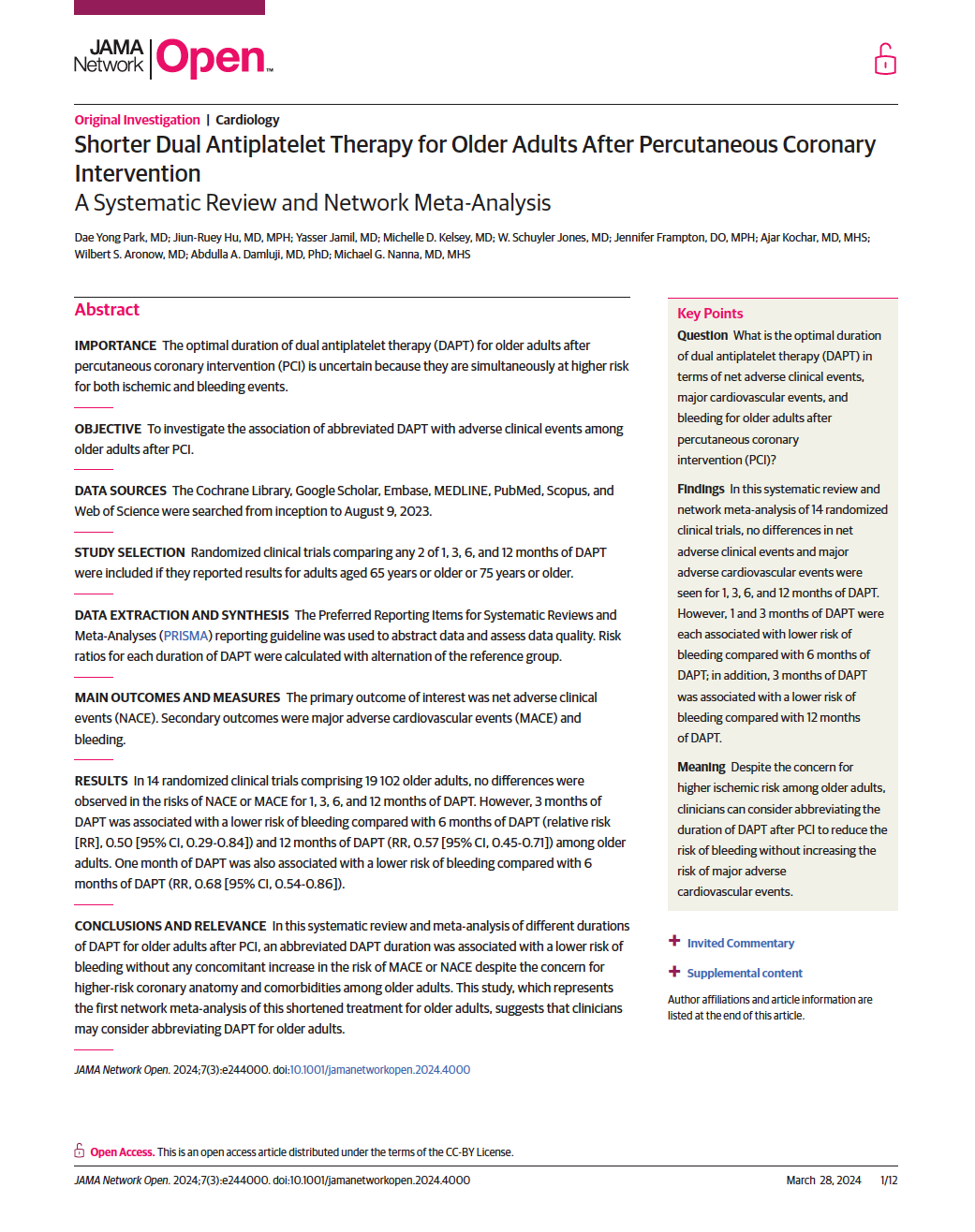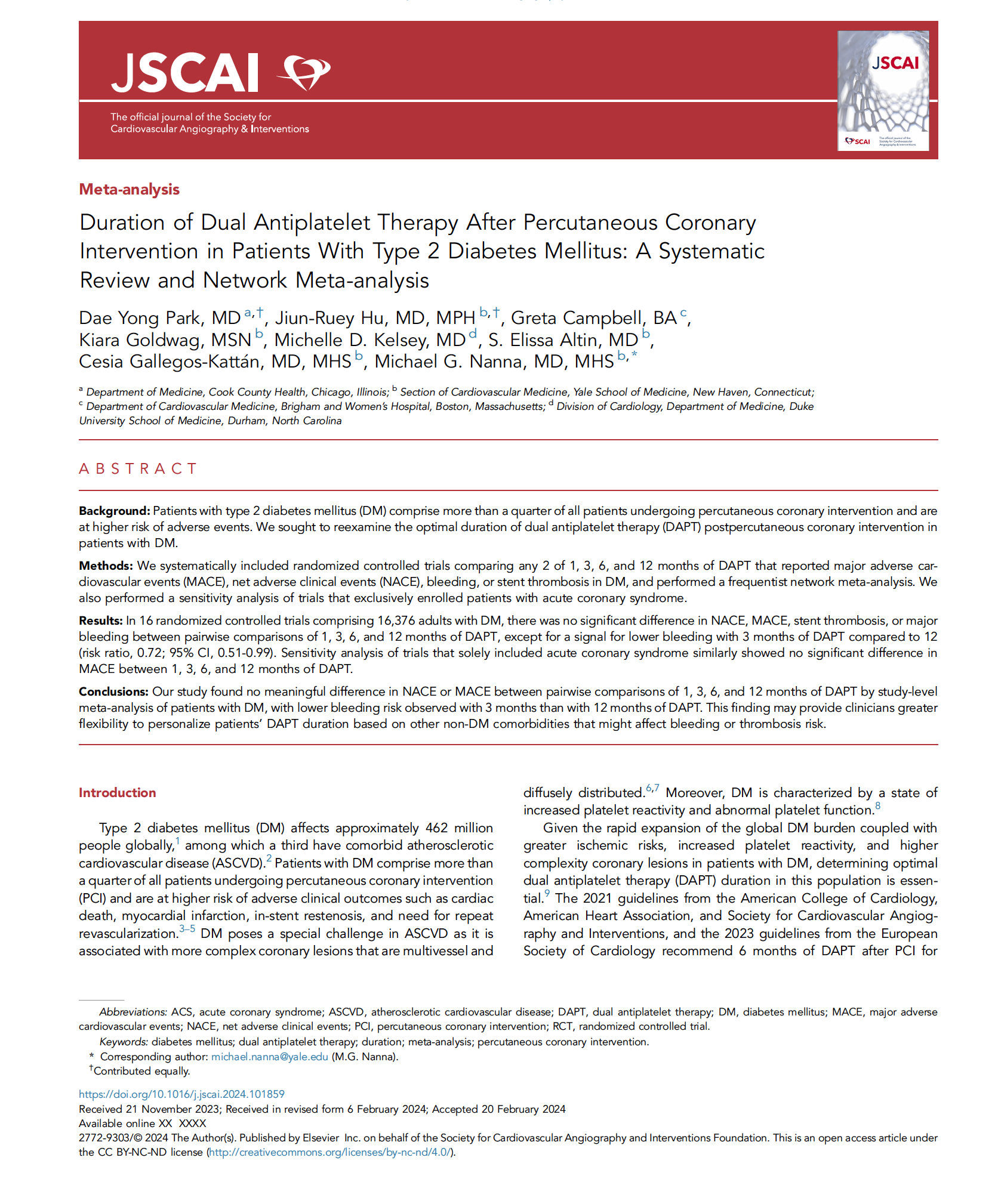📝 Abstract
Background: As the population ages, clinicians increasingly encounter ischemic heart disease in patients with underlying dementia. Therefore, we quantified differences in inhospital adverse events and 30-day readmission rates among patients with and without dementia undergoing percutaneous coronary intervention (PCI).
Methods: Using the National Readmissions Database 2017-2018, we identified 755,406 index hospitalizations in which PCI was performed, of which 17,309 (2.3%) had a diagnosis of dementia. After propensity score matching patients with and without dementia, we assessed 30-day readmission and inhospital adverse events by Cox proportional hazards and logistic regression modeling and compared them with those of other common cardiac (pacemaker placement [PP]) and noncardiac (hip replacement surgery [HRS]) procedures.
Results: Thirty-day readmission was significantly higher in patients with dementia than patients without dementia (hazard ratio [HR] 1.67, 95% confidence interval [CI] 1.60-1.74). Patients with dementia also experienced higher odds of delirium (odds ratio [OR] 4.37, CI 3.69-5.16), inhospital mortality (OR 1.15, CI 1.01-1.30), cardiac arrest (OR 1.19, CI 1.01-1.39), acute kidney injury (OR 1.30, CI 1.21-1.39), and fall (OR 2.51, CI 2.06-3.07). On multivariable Cox modeling, dementia independently predicted 30-day readmission (HR 1.14, CI 1.07-1.20). The higher readmission risk with PCI (11%) among those with dementia was similar to that of patients undergoing PP (10%), but lower than in those undergoing HRS (41%).
Conclusion: Patients with dementia who undergo PCI experience significantly increased rates of inhospital delirium, mortality, kidney injury, falls, and 30-day readmission. These adverse outcomes should be considered during shared decision-making with patients and their families.


